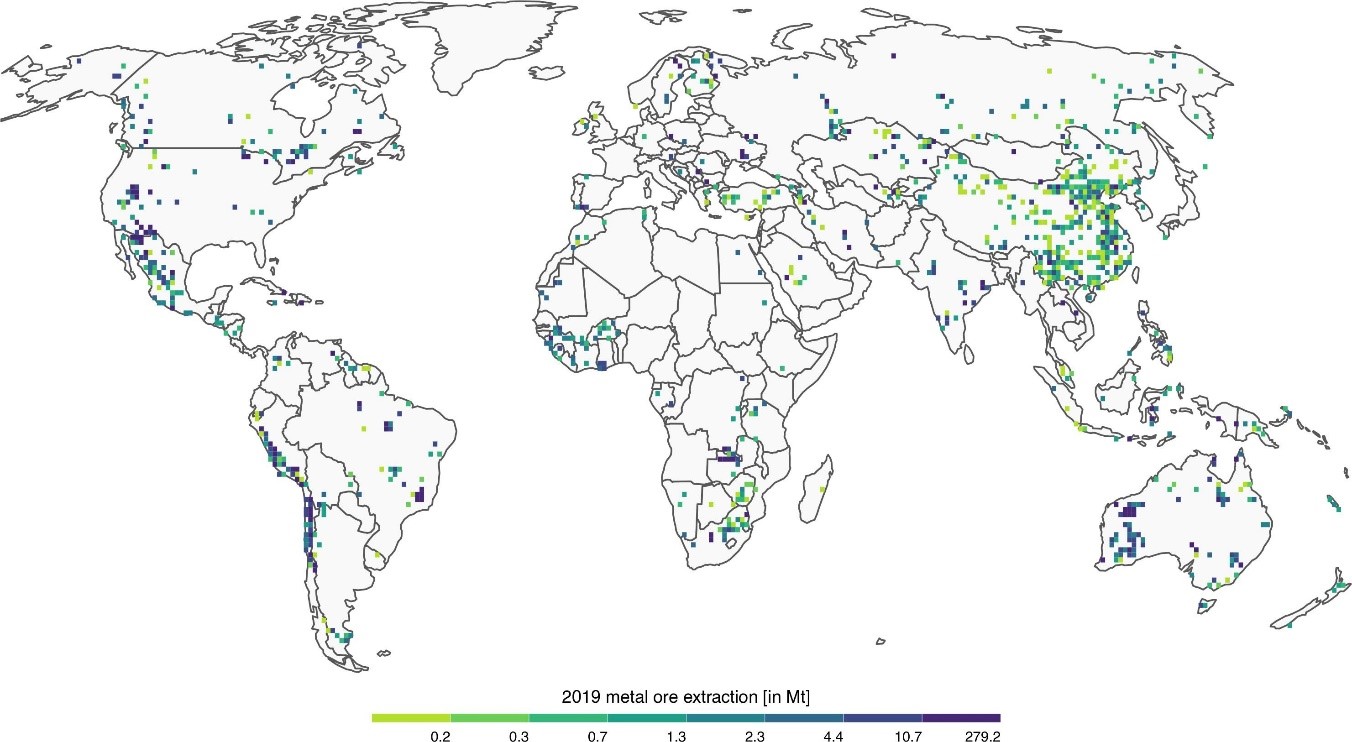Global expansion of mining activities
Mining activities induce profound changes to societies and the environment they inhabit. In the last two decades, global extraction of metal ores has drastically increased and so have the related pressures. In this paper, we explore where growing global metal extraction has taken effect.
We present and contextualise a detailed assessment of how metal mining volumes are distributed across almost 3,000 mining projects worldwide, covering nine metal ores (bauxite, copper, gold, iron, lead, manganese, nickel, silver and zinc) in the period 2000–2019. In order to explore whether the development of global metal mining has particularly affected vulnerable ecosystems, we intersected mine locations with spatial layers on biomes, protected areas and water scarcity and identified hotspots of raw material extraction and ecosystem impact.
Far-reaching environmental consequences
In our study, we found that the surge in global mining exerts increasing pressures on ecosystems recognised as vulnerable. Some highlights:
- 79% of global metal ore extraction in 2019 originated from five of the six most species-rich biomes, with mining volumes doubling since 2000 in tropical moist forest ecosystems.
- Half of global metal ore extraction took place at 20 km or less from protected territories. Extraction doubled within protected areas.
- Particularly copper and gold mining occurs in areas with significant water scarcity.
Our results underline that reoccurring local ecological distribution conflicts across the globe are not to be solved at the case level. They are consequences of an expansion systematically affecting species-rich, water-scarce, complex and fragile ecosystems.
Implications for mining companies and policies
To reduce associated risk in the short and medium term, the impacts of mining itself need to decrease, which demands action at the mine and the corporate level. Furthermore, we need to critically review and reform national environmental regulations. Any further expansion requires tight governance of which metals can be extracted, not just when and where, but also for what purpose and by what means.
One possible solution how both of these aspects could be controlled better is more vertical integration of mining in global supply chains, making these less complex and more transparent, which should be advantageous to consumer facing downstream companies, e.g. in the automotive or electronics sectors.



